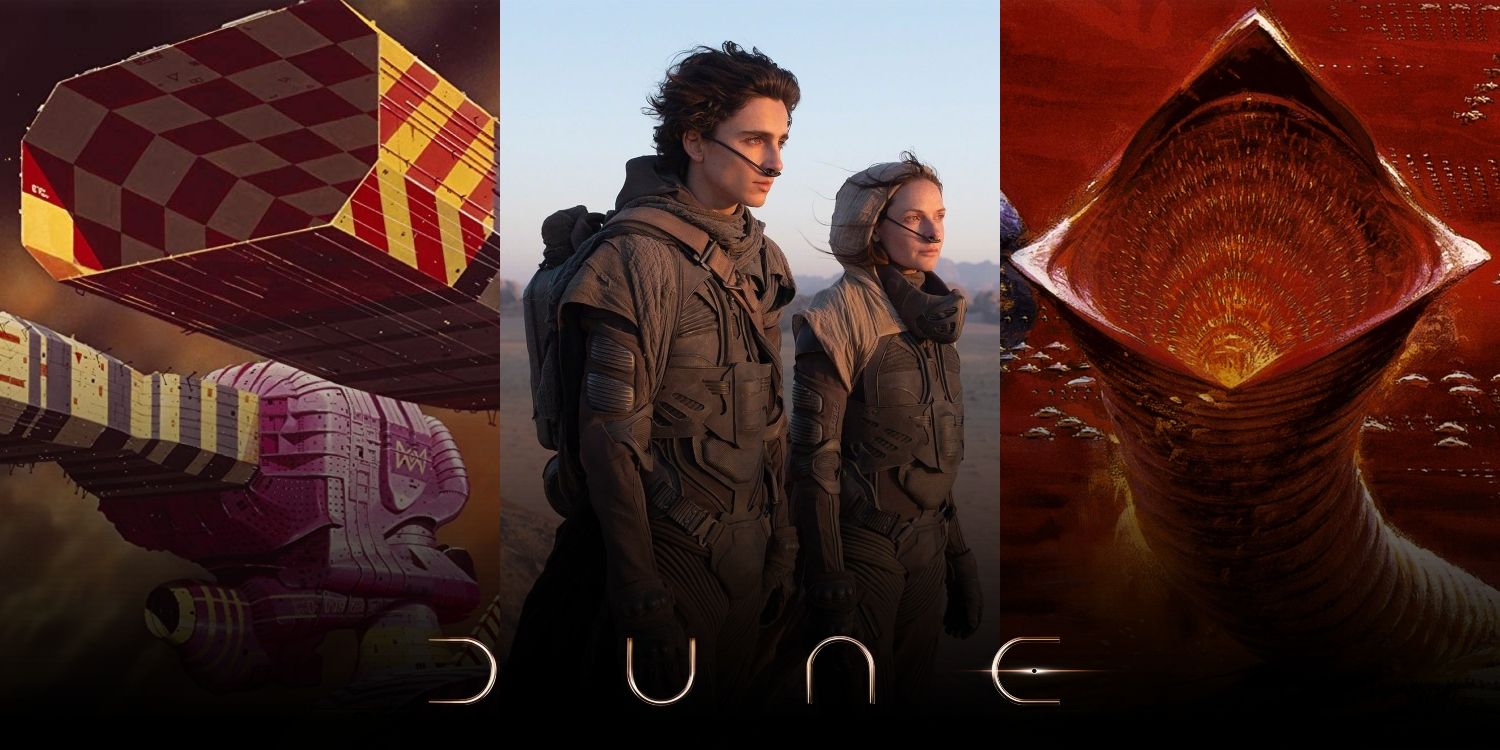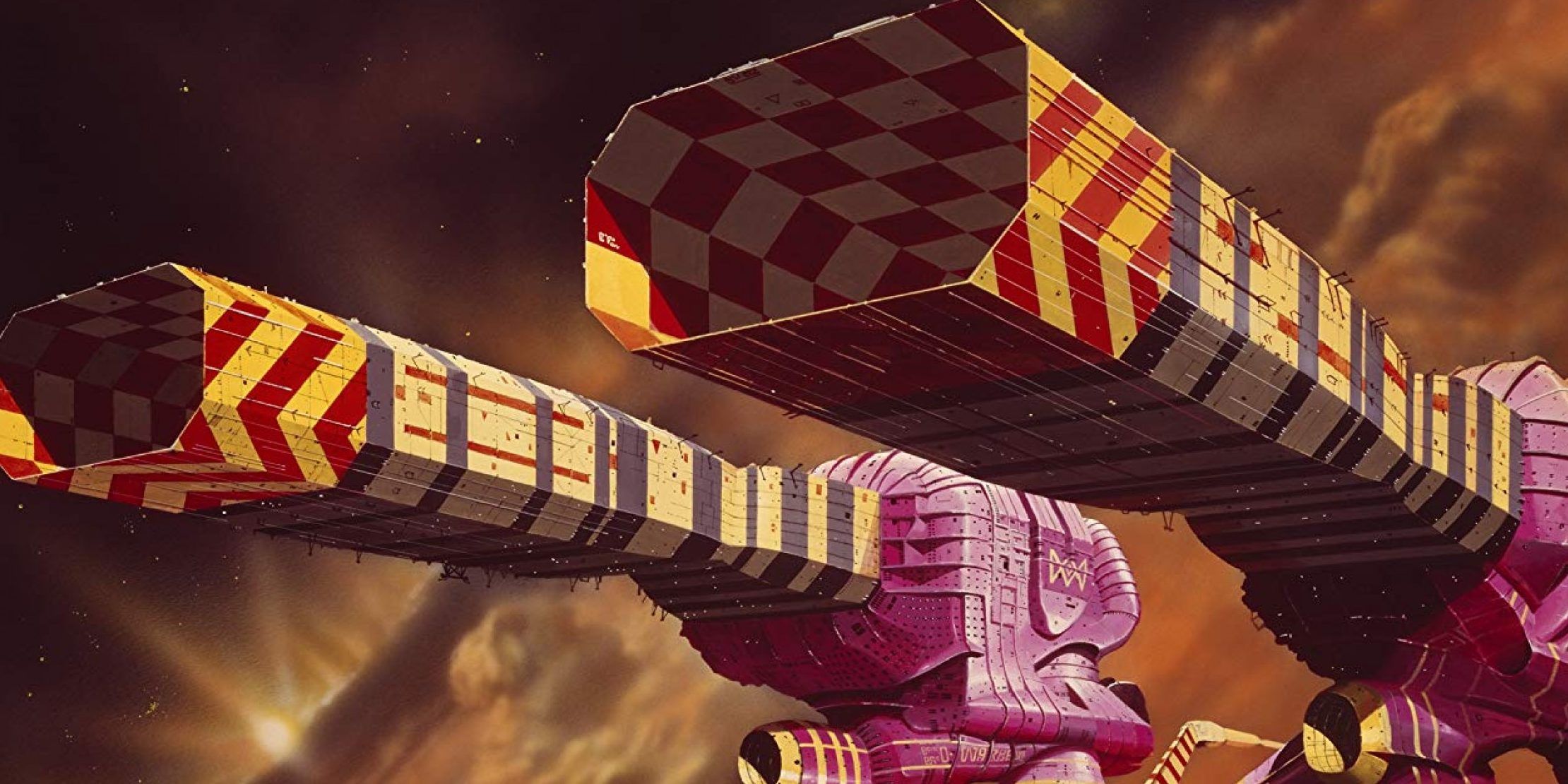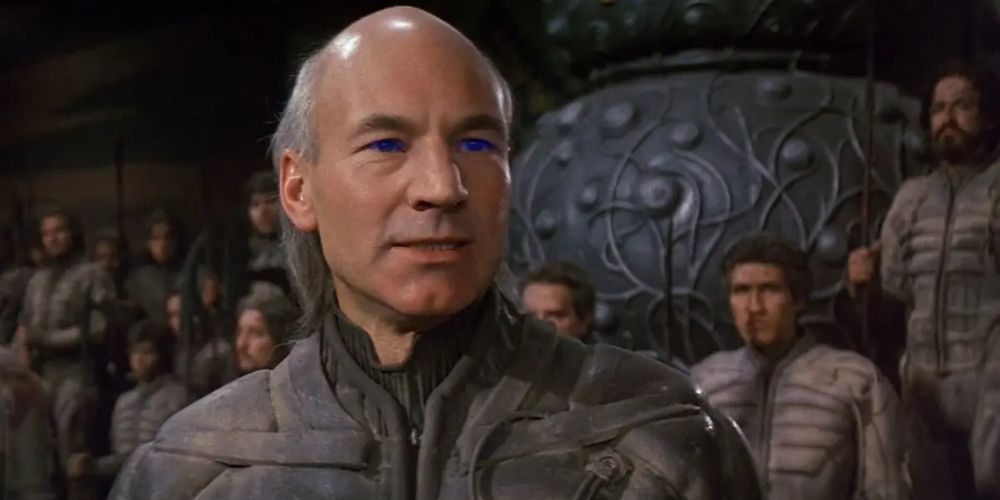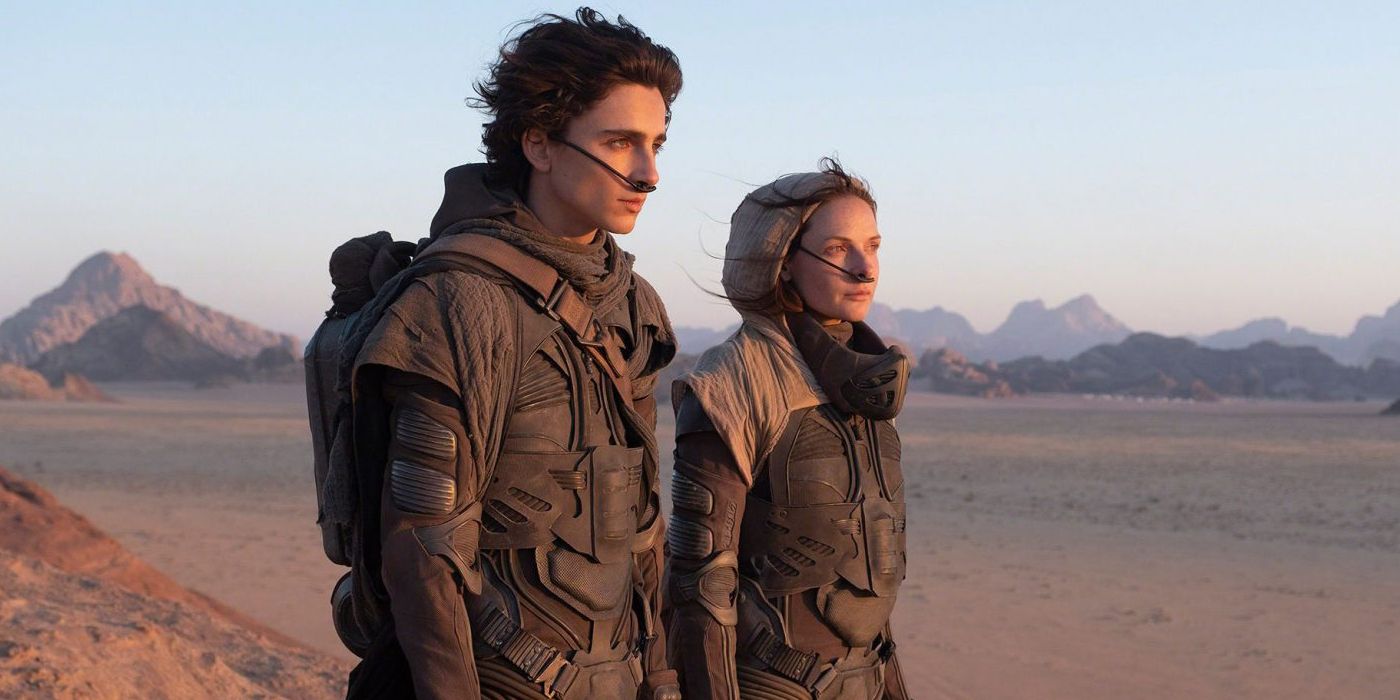With a budget of $165 million, Denis Villeneuve's Dune will be one of the biggest sci-fi adaptations in recent memory. And despite nearly a year's worth of delays, it's finally got a firm release date — October 2021. Prior attempts at filming Dune (which originated as an epic novel by author Frank Herbert) have been marred by difficulties. Only time will tell if Villeneuve will make a movie that fans of the book can rally behind. But based on the history that precedes his version of Dune, that's not going to be an easy task.
The first attempt at filming Dune came in 1971; it had only been six years since the book's first printing. But there was more demand for sci-fi stories after the release of Stanley Kubrick's 2001: A Space Odyssey in 1968. Because of this, Apjac (the studio that made the Planet of the Apes movies) snapped up the rights to Dune. They offered David Lean, director of Lawrence of Arabia and many other great movies, the chance to helm the project. Due to the critical failure of his previous film, Ryan's Daughter, Lean refused to take the role. The studio eventually found Rospo Pallenberg and hired him to write the script. But before filming could commence, Apjac head Arthur P. Jacobs died, and Dune, his "pet project", slipped away.
Cult filmmaker Alejandro Jodorowsky was the next person to take on Dune. He purchased the rights cheaply and got to work. His vision for the film was perhaps the most unique of anyone's; he considered himself and his crew "spiritual warriors". His films El Topo and The Holy Mountain had found both controversy and praise for their surrealist qualities. In keeping with this theme, he wanted his version of Dune to feel like an LSD trip without the LSD. Also, it would be 10 hours long. Kind of a hard sell.
He started looking for people who could help him create the bizarre, revelatory experience he wanted to simulate. He discovered cartoonist Jean Giraud, known as 'Moebius', and put him to work. 'Moebius' was the camera; he could capture anything Jodorowsky wanted in perfect detail. Sci-fi illustrator Chris Foss (who would later design spaceships for James Gunn's Guardians of the Galaxy) also contributed.
The next task was to find someone to make the special effects, and this wasn't very easy in the 70s. Douglass Trumbull (who had won acclaim for his work on 2001: A Space Odyssey) was the obvious choice. However, Jodorowsky didn't think Trumbull's energy was right for the project. Instead, the director tracked down Dan O'Bannon, having seen his work on the film Dark Star. As for music, who better than Pink Floyd? Their album The Dark Side of the Moon encapsulated exactly what Jodorowsky wanted for Dune.
Casting was an opportunity for Jodorowsky to get in touch with many of his idols. Orson Welles (whose Touch of Evil inspired the planned opening shot of Jodorowsky's Dune) would play the portly Baron Harkonnen. Jodorowsky asked Salvador Dali to play Emperor Shaddam IV, making clear his desire for Dune to be a surreal masterwork. The famed avant-garde artist agreed, but he wanted $100,000 an hour for his performance. In turn, Jodorowsky worked the schedule so Dali would only have to be on set for a single hour. Other stars included Dali muse Amanda Lear, French star Alain Delon, and Rolling Stones member Mick Jagger. Jodorowsky's son Brontis, then just 12 years old, would be playing the main role of Paul Atreides.
Unfortunately, funding ran out just as Jodorowosky was about to realize his vision. While studio heads liked the concept art, they didn't like Jodorowsky himself. Something about him scared them off. And it didn't help that he stuck to the planned 10-hour runtime, while they wanted it cut much, much shorter. So that was it. The rights went to someone else, and the Dune curse found its next target...
Ridley Scott, fresh off of his groundbreaking film Alien. Like Villeneuve after him, Scott thought the story would be better as two films, instead of just one. Unfortunately, Scott's brother died unexpectedly during production, and he didn't feel like he could continue afterward. Dino De Laurentiis, the person who had bought the rights from Jodorowsky's crew, moved on to David Lynch.
In 1981, Lynch was an unorthodox director who was beginning to make waves in Hollywood. He had just turned down the chance to direct the next Star Wars installment, Return of the Jedi. Instead, he decided to sign on to adapt Dune. This is a decision he would later regret, as he didn't have artistic control over the final product. However, he didn't blame anyone but himself for caving to the studio pressure. Because of this, his name is absent from the Dune credits. "Alan Smithee," a fake name for directors disowning their own work, appears in its place. Upon release, Dune bombed at the box office — and critics didn't like it, either. Frank Herbert himself, however, thought it was pretty solid.
A miniseries based on Dune came out in 2001. It doesn't have nearly as interesting of a backstory as any of the previous adaptations, but it's also pretty decent. Its medium is the only thing that holds it back. Every other iteration had been boldly cinematic, this one was made-for-television. But that might have been director John Harrison's intention. Considering how difficult it was to make the story work as a film, the TV format was a better option. At least back when there wasn't a $165 million budget at play.
David Lynch would go on to create the hit television series Twin Peaks and direct several films, including Mulholland Drive. He has no intention of seeing Villeneuve's Dune. Dan O'Bannon, Chris Foss, H.R. Giger, and Jean 'Moebius' Giraud, Jodorowsky's art design crew, all worked on Alien. After quitting Dune, Ridley Scott decided to tackle a different project. So he made Blade Runner, which ended up being a bigger success than he could have ever imagined.
And Alejandro Jodorowsky used his massive collection of sketches and ideas related to Dune to make a graphic novel series. Illustrated by Jean 'Moebius' Giraud, The Incal has become a cult classic comic in its own right. In 2013, a documentary came out about his attempts to adapt Dune, titled Jodorowsky's Dune. And though Jodorowsky was disappointed in the trailer for Villeneuve's Dune, calling it "predictable," he still wants to see it.




